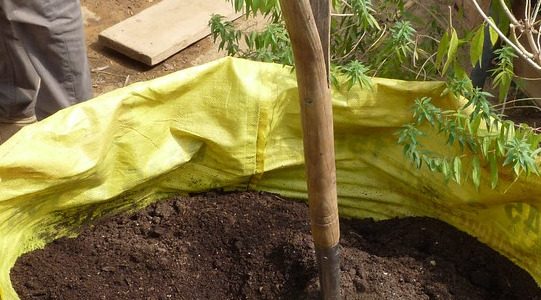Don’t you just love seeing your plants flourish and thrive? If you’re someone who’s really into gardening, you know what a joy it is to witness your plants develop from a seedling (or a cutting, if you already started propagating) to fully grown plants — branching out, multiplying its leaves, starting to grow flowers for some and for others, beginning to bear fruit.
It means that you’re taking care of them correctly — watering them properly and giving them the right amount of light. But plants, just like us humans, need other nutrition to stay healthy and strong. Sometimes water and sunshine are not enough, and we need to give them some much-needed vitamins and minerals, also known as fertilizers.
Since I’m not really a fan of chemicals, I usually go for an organic method and use all-natural fertilizers for my garden. We can make use of simple items we have in our home and backyard to create them. Nothing compares to homemade products if you ask me!
Homemade fertilizers are easy to make, fun to create and best of all, they’re cost-free! So why spend money on synthetic or chemical fertilizers when you can whip up your own eco-friendly recipe which is as effective as the ones you buy from the store? No need to look or go very far. Let’s start saving time and money by trying out these simple fertilizer recipes for your garden!
1. Kitchen Scraps
What better way to start your own compost is there than by saving all your kitchen scraps! Compost is filled with essential nutrients for plant growth. It also improves the quality and structure of your soil so that it can hold the right amount of moisture, nutrients and air. So, while you’re prepping and cooking your meals, may it be breakfast, lunch or dinner — keep those non-meat food scraps in a plastic bucket with lid and let nature take its course. Or you can directly bury your scraps in your garden soil and let them compost underground.
2. Weeds or Grass Clippings
Check out those unwanted weeds and excess grass in your garden. It’s time we put them into good use! Weeds and grass clippings are great fertilizers as they are very high in nitrogen and they release water and nutrients back into your garden soil.
3. Coffee Grounds
Like weeds and grass clippings, coffee grounds are filled with nitrogen and they also help increase the acidity in your soil. Make use of your leftover coffee grounds by placing them into the soil at the base of your plants. It will surely perk them up, and keep them healthy!
4. Manure
This can come from horses, cows and chickens. Composted manure is best since raw manure can be highly acidic and may be harmful to some plants. If you don’t have any farm animals, there may be some people who are willing to give away composted manure for free. Composted manure has been used for centuries because it is filled with essential nutrients for your plants and improves soil’s water retention without putting your plants at risk.
5. Tree Leaves
Aside from having significant minerals, tree leaves also attract earthworms that help retain moisture in the soil. So next time you sweep up fallen leaves from your tree, try to collect and mix them into your potting soil. Crushed leaves can also be used as mulch to prevent weeds from building up in your garden.
6. Banana Peels
Bananas are a good source of potassium and potassium contributes significantly to your plant’s proper growth. Simply bury the peels under the soil and let them compost naturally. You will surely see more blooms for flowering plants and fruits on fruit-bearing trees/shrubs.
7. Eggshells
Who could forget eggshells as fertilizer for plants? Eggshells have been used widely on plants and are great replacement for lime. After breakfast, save those eggshells and crush them to put into the soil. Eggshells contains lots of calcium carbonate and prevents the roots of plants from rotting.
8. Fireplace Ash
Just like banana peels and eggshells, fireplace ash is also a good source of potassium and calcium carbonate. Before planting, amend your soil by adding fireplace ash.
9. Cat or Dog food
Got any pets who don’t finish their food? You can now recycle those leftovers by placing the dry dog or cat food on the garden bed, covering it with soil and then watering. Let the pet food decay naturally. Just make sure that the pet food is covered to keep your pets from digging it up and eating it! Pet food contains proteins and other micronutrients that can benefit the soil.
-Mel

